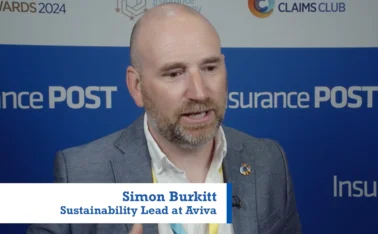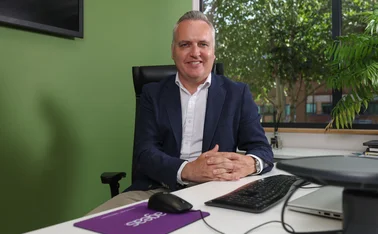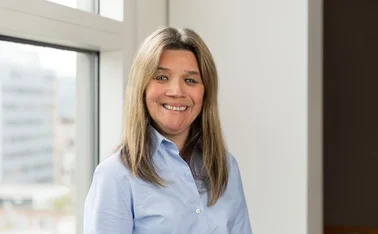
Insurtech Inshare targets SMEs to corporates with peer-to-peer launch

Insurtech Inshare is seeking to bring peer-to-peer risk and insurance management to the commercial community as it gears up to launch ahead of the Insurtech Connect event in Las Vegas next week.
The overall holding company Inshare Smart Risk sits above three different entities: Inshare Risk Sharing, Inshare Risk Management and Inshare Risk Transfer.
Inshare Risk Sharing administers the overall relationship with each individual industry community. Each community will own, manage and run its affairs and have an individual brand. This could include trade organisations, a number of which are talking to the start-up about white labelling its offerings.
Inshare Risk Mangement is a risk management marketplace that brings together a host of different companies that by themselves as individual members of Risk Sharing might not be able to afford services, but collectively would be able to access them as part of a greater whole.
Inshare Risk Transfer is the regulated intermediary arm that places any excess insurance that is needed above and beyond each community’s appetite for self-retention. The business is looking to get appointed representative status in the short term, before seeking authorisation, with a few brokers already expressing an interest in working with the business.
Risk management curation
Co-founder Graeme Thurgood, former strategic initiatives manager, Aviva Corporate Specialty and Risk, told Post: “We have created a digital risk eco-system that allows business from SMEs all the way to major corporates to share, manage, reduce and transfer risk in one place.
“One of our frustrations is that there are lots of good [risk management] solution providers out there that struggle to get through the door to meet insurers, let alone actually engage with customers who could get real value out of them. But with our expertise we will be able to curate a host of solutions in one place.”
Reflecting on the previous failure or re-positioning of peer-to-peer insurers from Guevara to Lemonade, Thurgood said: “These businesses all had the right idea, but fundamentally they were built around a ‘buying group’, whereas the structures that we are using to create our risk sharing communities are controlled and run by the communities themselves.
“So if they improve their risk they get money back, there is a complete virtuous circle. Whereas [other p2p insurtechs] are about buying groups, and purchasing en masse [to get a cheaper premium].”
Defending P2P model
Co-founder Gareth Eggle, who previously acted as an advisor for Canopy and Flock, added: “There are several reasons we have not gone after the consumer market [like other p2p insurtechs]; one is that we want people to talk about what they are doing with their peers and the value they get from it. You can’t suddenly tell everyone in a community of homeowners that they need an alarm, fire sensors and leak detection tool, because you are talking about a couple of grands’ worth of kit. And many policyholders would simply say: ‘it is not worth it, I’ll just let the insurance company pick up the tab’ as I’m only paying £250 for my premium anyway.
“However, in the commercial space if you said to a community of farmers: ‘if you guys all club together and access this flood programme it will advise when there is likely to be a flood with as much 72 hours of notice. And engaging with that platform will then allow you to respond to that potential threat’.
“And then what happens is that they don’t make an insurance claim because they have not suffered a loss; but more importantly they have not suffered a disruption to their business. Individually they would not be able to access that flood programme as it might cost £25,000 for an annual license; but as a community of 100 farmers paying £250 or 1000 paying £25 they can. And we can make that happen because the risk sharing community is the customer.”
The founders reference the likes of the Medical Defence Union, Universities and further education specialist UMAL and Benenden Health as operating similar model to Inshare, and that they see it having potential internationally, especially in Takaful markets because of the mutual pooling of risk.
They also believe that it will not be just SMEs that will be interested, with Inshare citing its model as a realistic alternative to large corporates’ off shore captives, given the regulator is increasingly scrutinising these financial vehicles in terms of recovering tax from them.
Protection gap
Eggle continued: “We are not pretending the role of insurance is unimportant; what we are saying is that the role of insurance is slightly misaligned in many instances, for instance pricing risk in such a way that it is prohibitively expensive. That is why the protection gap exists.
“It does not exist because the capacity is not there. It exists because it is too expensive to access. And the reason it is too expensive to access is because of underwriting, compliance, distribution costs - all this stuff that builds up that price.
“The fact is an insurance policy is a sunk cost, once you have bought it you don’t get benefit from unless you make a claim. Membership of an Inshare managed community provides you with the opportunity to get money back for good behaviour; then take it out as a dividend, reinvest it against future claims or use it to extend coverage, it’s their money.”
In total Eggle and Thurgood claim to have spoken to over 25 risk management suppliers, and at launch plan to offer at least eight including 30MHZ, AGB Risk Control Services, BCRM, Brisk and Croner.
With regards funding the start-up Eggles said it was working to get its £150,000 seed enterprise investment scheme closed out with over 40% committed, adding this would see it through production, past launch, and into early next year with tangible revenue coming in. It was planning to then leverage this to do a seed round in 2020, he concluded.
Only users who have a paid subscription or are part of a corporate subscription are able to print or copy content.
To access these options, along with all other subscription benefits, please contact info@postonline.co.uk or view our subscription options here: http://subscriptions.postonline.co.uk/subscribe
You are currently unable to print this content. Please contact info@postonline.co.uk to find out more.
You are currently unable to copy this content. Please contact info@postonline.co.uk to find out more.
Copyright Infopro Digital Limited. All rights reserved.
As outlined in our terms and conditions, https://www.infopro-digital.com/terms-and-conditions/subscriptions/ (point 2.4), printing is limited to a single copy.
If you would like to purchase additional rights please email info@postonline.co.uk
Copyright Infopro Digital Limited. All rights reserved.
You may share this content using our article tools. As outlined in our terms and conditions, https://www.infopro-digital.com/terms-and-conditions/subscriptions/ (clause 2.4), an Authorised User may only make one copy of the materials for their own personal use. You must also comply with the restrictions in clause 2.5.
If you would like to purchase additional rights please email info@postonline.co.uk








